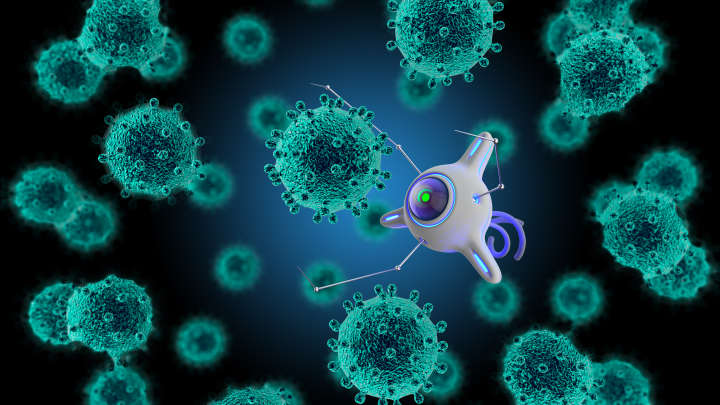
Tiny Robots Help Cure Stomach Infections In Mice
Share
In the not-so-distant future, drug treatments could be delivered straight to the problem area with the help of some very tiny robots. Researchers at the University of California, San Diego successfully treated bacterial gastric infections in mice using micromotors. The use of nanotechnology in medicine is nothing new but this is the first time chemical treatments have been administered in vivo with this kind of technology.
The micromotors used measured just half the width of a human hair. Loaded with a clinical dose of antibiotics, they traveled through the stomach, neutralizing gastric acid and successfully distributing the drugs.
Traditionally, drugs to treat ulcers and stomach diseases are taken orally. This can cause problems because drugs are often acid-sensitive and can be destroyed by the stomach's gastric acid. To stop this from happening, doctors prescribe proton pump inhibitors to take with the treatment. They suppress gastric acid production so that the drugs can do their job.
But proton pump inhibitors cause another problem. They come with a long list of nasty side effects, including headaches, diarrhea, and fatigue. In the worst instances, they can trigger depression or anxiety and (in very rare cases) death.
The great thing about these micromotors is that they are able to neutralize gastric acid without the use of proton pump inhibitors. This all comes down to the way they’re built.
The micromotors used in the experiment were made from a magnesium core, layers of antibiotics (clarithromycin) and a positively charged polymer that helps them stick to the stomach wall. The magnesium reacts with the gastric acid in the stomach to propel it with a stream of hydrogen bubbles. This reaction also has the convenient side effect of reducing the amount of stomach acid. It’s only temporary and the stomach pH returns to normal within 24 hours.
Researchers administered these micromotors to mice with stomach infections caused by the Helicobacter pylori bacteria, a bacteria found in roughly half the global population. They did this for five days in a row. After the experiment, they examined the bacterial count in the mice's stomachs. The results, published in Nature Communications, showed the micrometers were as successful in treating the infection as oral medication – without the side effects.
It's still early stages but the researchers have already started planning future trials to delve deeper into the possibilities of this nanotechnology. "
The results are extremely promising and it might not be too long before they become common procedure, not just for gastric infections but for all sorts of medical complaints.
Read more: http://www.iflscience.com/health-and-medicine/tiny-robots-help-cure-stomach-infections-in-mice/
